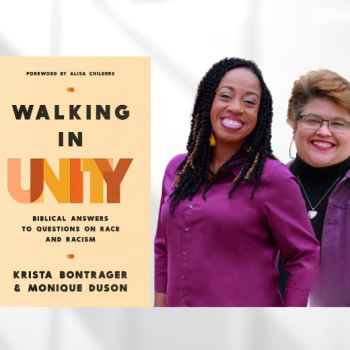
Is There a Right and a Wrong Way to Study the Bible?
Can our Bible study questions lead us to a misunderstanding of Scripture? As we look at how to study the Bible, there is one question leaders ask that can set you on a path towards practicing incorrect interpretation of God’s Word. I have heard it asked (and said it myself) for many years. We will be looking at the question in question, as well as providing alternative questions to ponder to grow in our Bible interpretive skills as Christians.
I Wish I Had Known About the Bible
Growing up a confirmed Catholic, and now an Evangelical Christian, I can see just how unfamiliar with the Bible and its teachings I was. I did not know anyone who brought their Bible to mass, let alone opened it during the week, and some did not even own one at all.
I lament over this.
Had I known that God Himself had lovingly given answers through His Word to so many of my cares, the daily despairing about the death of loved ones for instance, I would have been so better equipped to endure the traumatic experiences I had encountered in my childhood.
This is why I am writing with all my heart to those who are seeking the truth about THE Truth.
What a gift we have in God’s Word! Let us be diligent in our study so we can best understand God, and have a relationship with Him!
First, What is Hermeneutics and Why Should Christians Study it?
According to Tobin Perry of logos.com: “Biblical hermeneutics is the method of interpreting Scripture so we can bridge the gaps between modern-day readers of the Bible, its original audiences, and God as its ultimate author.” Some scholars even call it the “science of Scripture interpretation.”
Having studied at Moody Bible Institute and Southern Evangelical Seminary, it is noteworthy that both of these schools require a hermeneutics course in order to obtain any sort of certificate or degree. It is THAT important. And it should be of the same importance to any member of the Body of Christ.
Why Does Studying the Bible (Properly) Matter?
God did not have to provide us His Word, or the Bible. He could have left us guessing and unprepared. How do we know that God has “great love” for us other than the offering of His Son, Jesus? By poring over the pages where He poured out His heart in the Word.
Proper study of the Word helps us understand what God is saying, who God is, and all that He has done and will do.
A look at 2 Tim. 3:16 shows the advantages of studying and living by God’s Word:
“All Scripture is inspired by God and is profitable for:
-
- teaching,
- for rebuking,
- for correcting,
- for training in righteousness,
- so that the man of God may be complete, equipped for every good work.” (CSB, 2 Tim. 3:16)
As a parent, if there is one thing I want for myself, and for my daughters, it is to be “complete and equipped for every good work!” Our Father wants this for His children!
Studying Scripture as believers shapes our worldview. What we deem as morally right or wrong, and base our decisions on, all comes from our understanding of God’s Word as a Christian.
So… What IS the Worst Question You Can Ask as a Bible Study Leader (or Student)?
“What does this verse, passage, Scripture mean to you?”
Or let’s say you’re at home studying the Bible, you might ask yourself, “What does this mean to me?”
Now, this is very different than: “What does this mean FOR me?” That is an apt, applicable question that should be answered at the end of your study once you learn what the original meaning is.
What is the Problem with Asking this Question?
Asking, “What does this mean to me or to you?” puts the pressure on man as the judge of what a passage is saying, which should lie solely with the author, who is in fact: God.
I once heard an apologist give this example.
Imagine you receive a handwritten letter from your significant other. You read the letter, and say to your beloved, “Here’s what I think this means…” and then say what you thought it meant with your perspective and feelings, instead of what the letter actually said.
Through your perspective, their words have now become your words.
Presumptuous at best, right?
Reading the letter through your own lens is problematic because you might miss the author’s intent and heart behind it. Worse yet, you might add your own ideas, and then proceed to share this misperception with others.
On our own accord, we can hijack the meaning of the absolute of absolutes!
Here in Texas, we have a slogan in regards to littering that lies deep in the heart of every Texan: “Don’t mess with Texas.” We should also apply this to God’s Word:
Don’t mess with the Word of God.
Since God is the Bible’s author, this practice might even be dangerous. We were not inspired to write Scripture.
There is a term for this: eisegesis, but I like to call it playing holy telephone. Eisegesis happens when you impart your ideas into the interpretation.
This erroneous effect can happen when sharing in a Bible study group, and that is the opposite of “iron sharpening iron” (Proverbs 27:17).
“In biblical interpretation, the reader does not control the meaning; the author controls the meaning… Rather, we seek to discover the meaning that has been placed there by the author (Duvall and Hayes, 195).” This correct practice of studying Scripture is called: exegesis.
Eisegesis- BOO.
Exegesis- YAY!
Our goal in Bible study should be to discover meaning, not to determine meaning!
Here are some examples of how we can misinterpret God’s Word, along with tips to help us better see the intended meaning.
1. Taking the Bible’s poetry or a figure of speech literally:
“Let the rivers clap their hands, let the mountains sing together for joy…” (Psalm
98:8)
We know that rivers do not have hands, silly-billy! You might think this is easy to avoid, and you would be correct.
Take Proverbs for example, it is helpful to note where Solomon uses “she,” depending on the passage, he could be referring to a personification of Wisdom, and not an actual person.
There are more subtle allegorical passages that might prove difficult to understand.
How to avoid this?
- Recognize the genre the verse, passage, or book is in. A great resource for more information on this is Grasping God’s Word by Duvall and Hays.
- Grammarians, theologians, and translators are bffs in the world of hermeneutics. Together, they create study Bibles! A good study Bible can also help to alleviate the strain of truth-digging.
2. Returning to the Law and becoming legalistic:
In Acts 15, we see a legalism situation ensuing with teachers who were telling Gentile converts that they had to be circumcised just as the Mosaic law prescribed. This false teaching brought major strife to both the Gentiles and the Apostles.
We see some believers today who are, in some cases, adhering to the Mosaic law as law, which is legalism, and thus, forgetting the grace and sacrifice of Jesus Christ.
Peter settled the matter with these words:
“Now then, why do you try to test God by putting on the necks of Gentiles a yoke that neither we nor our ancestors have been able to bear? No! We believe it is through the grace of our Lord Jesus that we are saved, just as they are” (Acts 15: 10-11)
How to avoid this:
- Remember, which covenant we are now under as Christ followers- the covenant of grace brought by the Lord, Jesus Christ, and His sacrifice. His “yoke is easy” and his “burden is light” (Matthew 11:30). It is so important to read the Scripture in its entirety!
3. Taking the Word out of context leading to spiritualization:
Sometimes we take a passage that was meant for a specific person or a specific people group depending on where or when it was written, and make it personal to ourselves or more spiritual than was intended. This is known as spiritualization.
Equating God leading the Israelites over a “dry riverbed” (Josh. 3:17), to the “dry seasons in our lives,” is just one example of this that Duvall and Hayes give in, Grasping God’s Word (205-208).
How to avoid this:
- It is always okay to admit: “I do not know what this means.” Run questions by your Pastor or trusted mentor to get clarification. We are called to seek wise counsel in Proverbs 24:6.
- Pray for wisdom! We know from Solomon’s example to ask for wisdom that God was very willing to gift him what he asked for.
- Bring your elementary language arts teacher to mind (who was either you favorite or least favorite teacher- there is no in between there!). Remember and heed your teacher’s cries to: “Search for the context clues!” Utilize the questions “who, what, where, when, why, and how?” to obtain vital information about the text you are reading.
- When was this written?
- Who was the intended audience?
- Who was the author?
- What is the Hebrew or Greek translation and meaning of this word?
- Here are resources for answering these questions,
- try using a Bible dictionary,
- concordance (here is a free app!),
- a helpful book on often confused passages,
- a commentary,
- check out the ever-researched Mike Winger, if a theological library were to be in human form it would be him!
- Be certain to read the passages before and after the verse(s) in question as this will also provide more context.
- Another tip, God’s Word will not contradict itself. If you are finding something to be out of line with what the other truth in the Word that you have read, then it might not be correct.
The Best Way to Avoid Misinterpretation of the Scriptures
Thankfully, God knew we would need help. He sent us the Holy Spirit, who is given to all believers. He did not leave us stranded in the the vast Land of Bewilderment!
Isn’t He so good to us? He saves us and then He seals us!
“In him you also were sealed with the promised Holy Spirit when you heard the word of truth, the gospel of your salvation, and when you believed” (Ephesians 1:13).
The Holy Spirit “guides you into all the truth” (John 16:13).
I have another term for the vocabulary enthusiasts out there: sanctification. This is the work that the Holy Spirit does in us to align us to the Lord’s will, to guide us to become more like Christ in our thoughts and actions. God’s written words allow for this process of our spiritual maturation.
Church family please hear my heart, much like the gospel, understanding the Word is about His grace, and not our works. We can do our very best to study with the tools of our mind and scholarship, but we must trust the work of the Holy Spirit to guide us into correct truth.
Thank God that we do not have to know all the answers to trust and obey the truth He has given us.
What Is Our Response to the Worst Bible Study Question:
What Does this Verse Mean to You?
Perhaps we should answer with a humble heart, “It means everything to me.”














